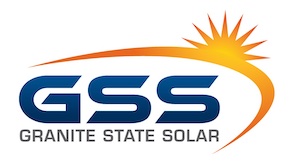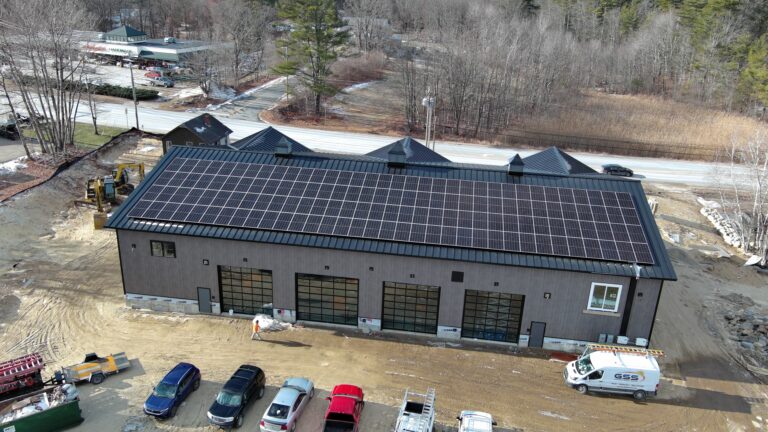New Hampshire residents have seen a huge increase in their electric bills recently, leading many of us to ask: what in the world is causing these rate hikes?!

In June, Eversource (New Hampshire’s largest utility) announced its intention to increase rates. Since then, every major New Hampshire utility has followed suit.
The result: New Hampshire Electric co-op increased 77%, Liberty Utilities 100%, and Eversource a whopping 112%. Unitil exceeded all rate hikes when on December 1st they increased rates by 89% from 17.9 to 33.7 cent per kWh. (Eversource more recently announced a 10% decrease to their rates starting in December, but even with the decrease, prices are still volatile, and ratepayers are left paying electric bills significantly higher than they are used to.)
With rates changing unevenly throughout the entire state, we are all left feeling disgruntled, confused, and frustrated (….and maybe a little broke).
“There’s a fierce independent streak here,” Granite State Solar President Paul Lesure states. “Granite Staters are frustrated to see their bills go up and up and up—with little to no say in the matter. Even if your energy usage stayed exactly the same, your bill went up. As a result, we saw a record-breaking number of people reaching out for solar as a way to take control of where their power comes from and how much they pay for it.”
How does solar save you money and insulate you from future rate hikes? Here’s how the logic stacks up.
Why is my electric bill going up?
The short answer–High demand, low supply, and reliance on an unstable energy market.
Like any other supply and demand market, the price of electricity per kWh (kilowatt hour) ebbs and flows. New Hampshire is currently feeling the brunt of aggressive price increases for electricity, which has left many communities anxiously awaiting the harsh New England winter right around the corner.
The main driver behind the increase in electricity prices in New England is our reliance on fossil fuels, specifically natural gas. Providing enough natural gas to the area is a complex and challenging endeavor.
New Hampshire lacks the natural resources to be energy independent, and infinite drilling isn’t an option. We rely on imports from other parts of the world. The war in Ukraine has caused a decrease in supply as well as supply chain issues that have driven up prices to unprecedented levels. Because of our state’s heavy dependence on the international energy market, New Hampshire ratepayers have felt the brunt of this instability as their electric bills have more than doubled over the last six months.
New Hampshire is currently stuck in a never-ending struggle for energy. We have become victims to an ever-decreasing natural resource and an incredibly unstable international market that is not likely to level out any time soon. Alternatively, there are New England states that have committed themselves to a “green” future by investing in renewable energy but are not seeing these massive rate hikes.
Related: Freedom from the Utility Company with Solar Panels
How can I insulate myself from increasing electrical prices?
A great way to boost your energy independence is with solar. True, Eversource customers may get some relief since the utility will reduce their rates by 10% (or a reduction from 22.6 cents a kWh to 20.2 cents a kWh). But historically, rates only go up. This anomaly is only in response to the insane spike in electricity we’re currently experiencing, and rates are still double the price we saw during the summer.
So why take a gamble on future electric bills when you can invest in solar now and never have to ride this financial roller coaster again? There isn’t much you can do to help decrease your electrical costs when you’re up against increasing market rates for energy, but this is where solar can really shine!
The individual choice to go solar also has a positive impact on our community. Net metered solar power feeds back into the grid and allows excess production of clean energy to be used by others connected to the grid. As more Granite Staters go solar, it will offset the amount of natural gas that is needed to power our community.
Read On: How Solar Protects Against Utility Rate Hikes
Can solar save you money in the long run?
Going solar can insulate you from future rate hikes and in the long run save you money. Let’s discuss both financial avenues you can take when you decide to go solar and how it may be worth your while!
Option one: You can finance your solar array and lock in a consistent monthly loan payment. Instead of depending on and paying for the utilities to provide energy, you would now be creating your own energy on-site. A monthly loan payment would replace your monthly electrical bill to the utility.
This monthly payment will remain consistent throughout the duration of your loan—not spike as your electric bill does! Granite State Solar partners with VSECU to give our customers solar financing options, a lot of these loan options will end up being shorter than the lifespan of your solar array, meaning you’ll have years of free power long after your system is paid off.
Must Read: Electric Bill vs. Solar Loan: What to Know
Option two: If you decide you would like to pay for your solar array outright, you are investing against future rate hikes for the next 30 years. 30 years of an increasing monthly electrical bill far outweigh the upfront cost of your solar array for the duration of its lifespan.
Both options will lead to the same destination, energy independence. Remove yourself from the burden of fossil fuel dependence and wisely invest in local energy. It is safe to say that after the year we’ve had record-breaking electrical prices, we are tired and fed up with the uncertainty of our monthly bills. Solar, although a larger upfront investment, will always protect New Hampshire residents from any future energy price uncertainties.
~Lilly Baron



